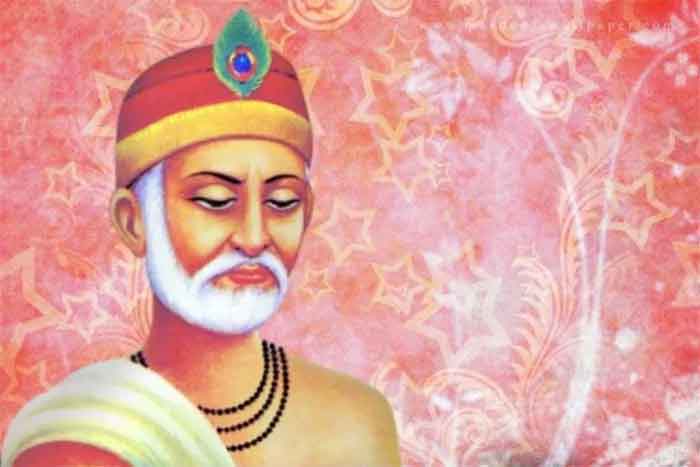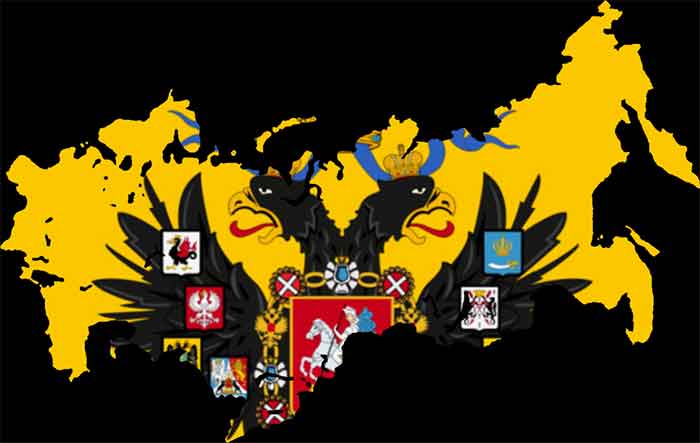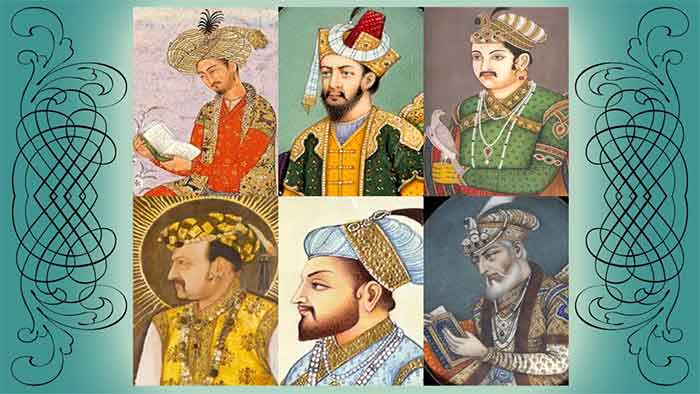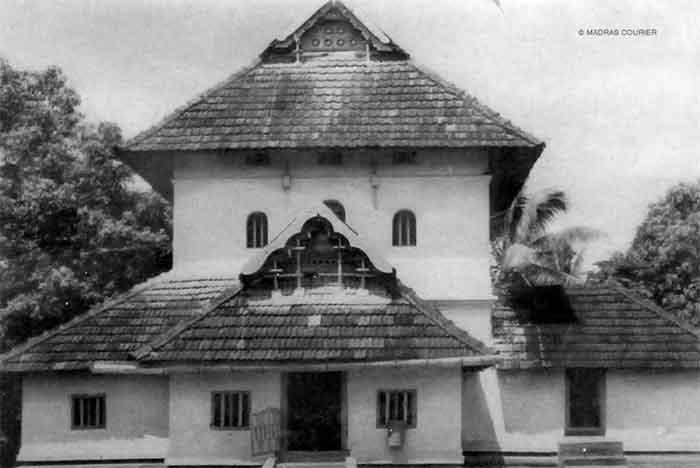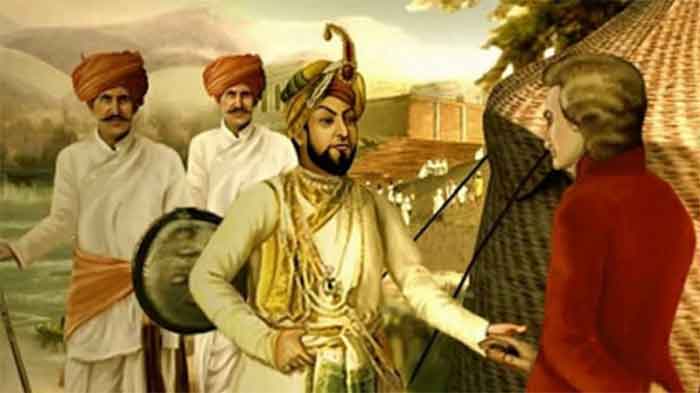
History tells us that, at crucial moments in the life of states, one person may determine the fate of an entire nation, and this is exactly what happened to India when the treacherous Nawab of Bengal Mir Jafar caused Britain to occupy his homeland for a period of up to 200 years, to fire the last bullet into the heart of the Mughal Empire. He let the British occupy his homeland, and this allowed them to control India for about 200 years. But how did this happen?
Kamal Mir Muhammad Jaafar Khan, famously known as Mir Jaafar, was born in the late seventeenth century, specifically during the year 1691, to a family of Arab origins. There is not much information about his early life, but he was very ambitious and very eager for political power, and for this he served in the army and kept rising in positions until he reached the rank of a major general in the Bengal army. Because of his political ambitions, he also married the daughter of Nawab Siraj al-Dawla, the ruler of Bengal, and became one of his most important leaders.
At that time, the Mughal Empire- after many years of prosperity, was in a state of weakness due to the incompetent rulers of India and their exposure to external invasion from neighbouring countries, which was weakened by ineffective leadership and external threats. The British East India Company, a powerful entity with a military and economic stronghold, sensed an opportunity in this state of affairs.
In the late 16th century, British merchants obtained royal permission from Queen Elizabeth I to sail in the Indian Ocean, and finally in the year 1600, a group of merchants obtained a Charter sealed by The Queen empowered them to trade as rulers and as a company to trade with the East Indies. This charter gave them a monopoly on trade from the Cape of Good Hope eastward to the Strait of Magellan, thus giving birth to the English East India Company, which would control more than half of the world’s trade for two and a half centuries.
But the matter did not stop there. The English East India Company had established its own army, which by 1800 was twice as strong as the British army. It also had its own navy, which included large fleets of ships. Throughout its history, the Company helped to spread world trade as well. It fed the city of London with many commodities, pushed the wheel of the industrial revolution in Europe, and contributed to the prosperity of the British economy. This is how The English East India Company began to exploit the weakness of the Mughal Empire.
The East India Company took advantage of the weakness in the Mughal state and began to manipulate their political differences, as it began to persuade the princes to achieve massive revolutions from trade. The British began to deal with the Hindus in trade to strengthen their side at the expense of the Muslims, and this is what made one of the Muslim Nawabs move quickly to stop British interference in the affairs of the Indian subcontinent. But the British knew that they had its secret weapon embodied in Mir Jaafar, who aspired to reach power, would assist them to achieve their goal.
By 1756, the Seven Years’ War began between France and Britain, and with these two countries engaged in a raging colonial conflict, the agents of the two countries in India began attacking each other, an opportunity that Prince Siraj al-Dawla took advantage of, as he sided with the French and asked for their help to get rid of British interference in his country.
At that time, the headquarters of the British East India Company was Calcutta, and for this reason, Prince Siraj al- Dawla began attacking their commercial centers on the coast .The British comprehended that the prince is the great threat for their interests, properties, and the huge fortunes that they had achieved from opening the Indian markets.
The British considered that what Prince Siraj al-Dawla did deserved a strong response, and that is why they assigned British Lieutenant Robert Clive to attack him on June 23, 1757 in the village of Plassey, near the Indian city of Calcutta on the east bank of Bhagirathi River. The strength of the British army at that time was about 3 thousand soldiers, while the army of Siraj al-Dawla was consisting of 50,000 soldiers, yet only one person caused the loss of Sirajuddin’s army and paved the way for the Indian subcontinent to fall into the hands of the British occupation, General Mir Jaafar.
Britain had its secret weapon embodied in Mir Jaafar, who aspired to reach power, and accordingly, Mir Jaafar joined the army of Prince Siraj at the beginning of the battle, but in the middle of the fighting he withdrew his soldiers and joined the British army to resolve the battle in favor of the British, which forced Prince Siraj to flee for his life, but he was captured and was executed after a short period of time.
After the battle, Mir Jaafar was appointed as Nawab of Bengal, replacing Siraj al-Dawla, a title that Jaafar yearned for throughout his life. Huge amounts of money he got, and the biggest beneficiary at the time was the British Lieutenant Clive, as the wealth he obtained from Mir Jaafar was estimated at 401,102 pounds sterling, which was a very huge amount at that time.
Over time, Jaafar was unable to meet the increased demands of the British, and after several years, Lieutenant Clive discovered that Jaafar had made a deal with the Dutch in 1758, and therefore the British punished him by replacing him with his son-in-law, Mir Qasim in 1760. But then it became crystal clear that Mir Qasim was more independent than Jaafar, as he tried to be liberated from the grip of the British by strengthening his position as ruler. He also began to organize the army and impose new taxes to build the economy of Bengal, which led the British to isolate him and restore Mir Jaafar to rule again after the battle of Buxar between 22 and 23 October 1764 between British East India Company forces led by Hector Munro and and the combined armies of Mir Qasim, the Nawab of Awadh Shuja-ud-Daula and the Mughal Emperor, Shah Alam II.
Mir Jafar learned his lesson well and began to make repeated concessions to the British until the East India Company became the de facto ruler of Bengal completely. And this is how it went, the company began to collect taxes from the merchants and then cleverly used part of the proceeds of those taxes to finance the purchase of Indian goods for British consumption. In other words, instead of paying for Indian goods, the British merchants got them for free.
The betrayal of Mir Jaafar in the Battle of Plassey had a major and pivotal role in the downfall of his country. First, Lieutenant Clive obtained all the goods, commodities, troops, and loyalists he sought through Jaafar. Secondly, Bengal, which was in the hands of the weak Jaafar, was the stronghold from which Britain defeated the crumbling Mughal Empire, and from there specifically, the British occupation of India, which lasted more than 200 years, began with the thirst for political power of one person.
Ali Reza Sk is pursuing his bachelor degree at Darul Huda Islamic University, Kerala, India. Dept. Of Islamic Law. Also, a bachelor degree in Sociology from IGNOU.

